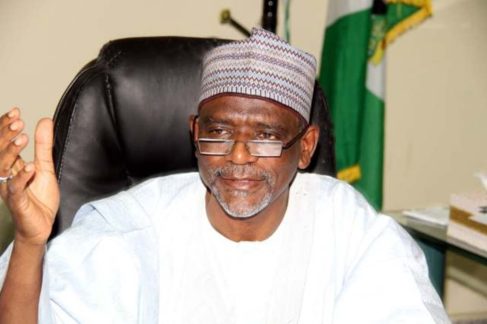The bulging sewers around the male hostel ooze heavily, as their contents seep out in trickles. The walls of the buildings are caking. The underbellies of the decking reveal their iron spines. The coat of paints has faded due to lack of maintenance and impact of weather agents. The buildings look like long abandoned homes. They are not.
Yet, in the face of this mess, some higher institutions have not considered initiatives that can turn the fortune of their schools around. They face acute accommodation crisis, but will not make available their expansive land resources to those willing to build, operate and transfer ownership of hostels.
Though Nigeria has at least 49 federal universities and 57 state-owned institutions, it has not been able to meet United Nations Educational, Scientific and Cultural Organisation’s (UNESCO) standard of 26 per cent budgetary allocation for the funding of education.
Nigeria’s allocation to the sector is still less than 10 per cent. Yet, 60 per cent of funding for universities goes into recurrent expenditure.
In its wisdom, to complement the funding, the Federal Government’s agencies, such as, Education Trust Fund, Central Bank of Nigeria (CBN) and other financial institutions and private organisations intervened on infrastructural development in some of the institutions.
The reality remains that funding has not been adequate for Nigeria’s tertiary institutions. That is even more frightening when the number of admission seekers is considered.
At least 1.5 million candidates have consistently applied for admission in the last seven years, but due to inadequate funding and facilities, only 250,000 are admitted, raising the issue – again – of funding and access.
Scholar, Prof. Bashiru Ademola Raji, few years ago, pondered on how Nigerian universities cope with the challenge of balancing education quality with increasing demand for access.
He emphasised on ‘financing approach’, which is collaboration between gown and town.
According to him, the collaboration connotes an arrangement where the private sector carries out the role of the supplier of infrastructure of assets and services that have traditionally been provided by government. Special purpose vehicle to develop, build, maintain and operate for the contracted period was canvassed.
According to Raji, common models of PPP adopted in some Nigerian universities include design-build or turnkey project, management contract, lease and operate contract, design-build-finance-operate, build-operate-transfer, buy-build-operate, build-own-operate, build-own-operate and transfer; donor-financed/funded-transfer.
With Infrastructure Concession Regulatory Commission (ICRC) Act signed into law, some tertiary institutions in the country have been exploring, albeit not extensively, the PPP options.
They are redefining terms, models and concepts. The ICRC is saddled with the responsibility of overseeing the PPP contractual agreement from which the National Policy on Public-Private Partnership. It, thus, regulates PPP agreement, monitors and supervises PPP projects in the country.
“Yet, the following steps should be considered before a PPP agreement is signed: clear vision, missions and goals for the partners; thorough cost benefit analysis of projects; secure contract detailing with clear shared responsibilities; and jointly agreed dispute resolution mechanism,” advised Raji.
The Nnamdi Azikwe University (NAU), Lagos State University (LASU), University of Ibadan (UI), University of Lagos (UNILAG) and Fountain University, Osun, illustrate the success stories of public-private partnerships.
For example, NAU has projects like the Chike Okoli Centre for Entrepreneurial Studies (a Design-Donor-Fund-Build and Transfer project); JUHEL Building housing the Faculty of Pharmaceutical Sciences; ELMADA International Hostels (a Built-Operate and Transfer project); Chisco Institute of Transportation Studies; and Gauze Pharmaceuticals Ltd Pharmacy.
The General Overseer of Mountain of Fire and Miracle Ministries, Dr Daniel Olukoya, donated a fully equipped research laboratory building to UNILAG; the United Bank for Africa (UBA) also got a parcel of land from the institution to construct a four-storey building in the school and Platform Capital refurbished and donated three lecture halls to the university business school.
During the refurbishment, the entire building was renovated and lecture halls were fully fitted with state-of-the art technology, including interactive white boards, sound systems and versatile furniture, to ensure a best-in-class digital learning environment for students.
In the same vein, philanthropist and businessman, Sir Kessington Adebutu, donated a four-storey research centre to the institution.
Similarly, founder of BUA Group, Abdul Samad Rabiu, donated the sum of N1 billion to the University of Ibadan, through the Abdul Samad Rabiu Africa Initiative (ASR Africa).
A similar donation was made to Ahmadu Bello University (ABU), Zaria, for the provision of accommodation facilities for students and a faculty building in the institution. Also, President and Chief Executive Officer of Dangote Group, Aliko Dangote, donated for Bayero University, Kano, University of Ibadan, among others.
At Fountain University, there are IBB Students’ Centre; Hall EasyPlace Properties Accommodation Project (under Build-Operate and Transfer); College of Natural and Applied Sciences in partnership with Al-Jaiz Bank, Nigeria (a Design-Finance/Fund project); Hajia Amina Namadi Sambo Multipurpose Hall (a Design-Build-Transfer project); and Adegunwa Hall of Residence is another Design-Build-Transfer venture.
One of the infrastructure problems facing tertiary institutions is inadequate hostel facility for the increasing number of students. Accommodation, no doubt, plays an important role in students’ life. To get the best out of them, they must not only have conducive environment to learn, but to retire to.
Speaking on the crucial role private sector plays in education, former Special Adviser to Lagos State Governor on Education, Obafela Bank-Olemoh, noted that the future of education requires private sector involvement.
According to him, strategic partnerships with private investors are vital in promoting excellence in tertiary education.
The idea of partnering the private sector is not new. In 2009, the Federal Government launched a PPP scheme to revolutionise students’ hostels, develop affordable and decent accommodation for university students, with the inauguration of a committee on build, operate and transfer projects.
The committee was to evolve a cost-effective, efficient and viable mechanism that will ensure facilitation of collaboration among government, private sector and universities in the provision of accommodation for students. That committee was also expected to provide guidelines for execution and management of hostels and creating an enabling environment for operation of the scheme without direct financial involvement of government.
Laudable idea, but like some projects of the government, not much has happened since then, almost 13 years after.
An infrastructure finance expert and lecturer at the University of Uyo, Dr Chris Arthur, said it is time for a partnership between the private sector and universities to save the future of tomorrow’s leaders.
He said to adequately fund universities, government must embrace various funding options, particularly the option of concession.
He said: “It is expected that private investors will inject required resources, which will improve infrastructure and quality of tertiary education. This option absolves government of funding responsibility in universities since the financial risk would be transferred to the private investor.”
Public analyst, Olumide Coker, said PPP remains the best option for tackling issues of funding, including tackling prevailing challenges of the nation’s education sector.
He said the private sector is interested in collaborating with the government in the area of funding to enhance education delivery.
“Government alone cannot adequately fund tertiary education in the face of increasing students’ enrolment, shortage of infrastructure and other educational services, competition from other sectors and more importantly, dwindling resources, occasioned by global economic meltdown.
“PPP holds the greatest prospect of addressing funding challenges in Nigerian tertiary institutions. These partnerships have helped to develop institutions in terms of adequate infrastructure, which by extension, have helped productivity of learning and teaching as well as increase growth of students intake.”
He added: “The rule of engagement is for the company to build and operate the facilities for some years to recoup investment and then transfer ownership to the university. At some other time, method of build and transfer (BT) are also employed where ownership is taken immediately the structure is delivered.”
“Consequently, the success of all these projects have become examples for many universities, notably Afe Babalola University and Ekiti State University, among others, who have used PPP to fund development of their own institutions. It is also instructive that through public private partnership, funding of certain infrastructure that aids learning process, such as water system, library and hotel facility projects has greatly improved.”
Education stakeholders believe that PPP is a more viable option for universities to embrace.
A student at Federal University of Technology (FUT) Minna, Niger State, Hassan Musa, said: “Our hostels are begging for attention, they are in a deplorable state. Currently, we have more than 21,000 undergraduates and the hostels can only accommodate about 3,000 students.”
Concerning basic amenities such as water and power, he said the services are only average. Water is the main concern, especially when the pumps breakdown.
The same situation is found at Abubakar Tatari Ali Polytechnic in Bauchi State as students complain of inadequate hostel facilities.
Power is a huge problem, according to Dr Valda Martins, a lecturer in the department of urban and regional planning at FUT, Minna.
Martins said that the needs of students and lecturers with disabilities are not considered when infrastructure is planned.
Students also struggle to get to their classes and have little access to facilities that make studying easier, such as library services.
Dr Ibrahim Inuwa, of Alhaji Tafawa Balewa University (ATBU) Bauchi, said: “I graduated from ATBU in 1993. At that time, two students were meant to share a hostel room. Now, the university administration is allocating seven students to one room of the same size.”
Inuwa said the halls along lecture rooms are crowded and there are often no chairs for students in the rooms.
He said for the past 20 years, ASUU has been championing the cause for government to fulfill its obligation to provide infrastructure, but to date facilities are not even average. As an alternative, he urged government to seek the support of the private sector in addressing some of the challenges confronting universities.
Prof Shehu Adamu of the Department of Quantity Surveying at Bayero University, Kano (BUK) said: “Relational-collaborative project delivery methods in funding of higher education has become a daunting challenge; hence, most governments have looked for alternative means to fund the institutions. PPP has therefore, become the emergent alternative method for the delivery of infrastructure in the universities.









